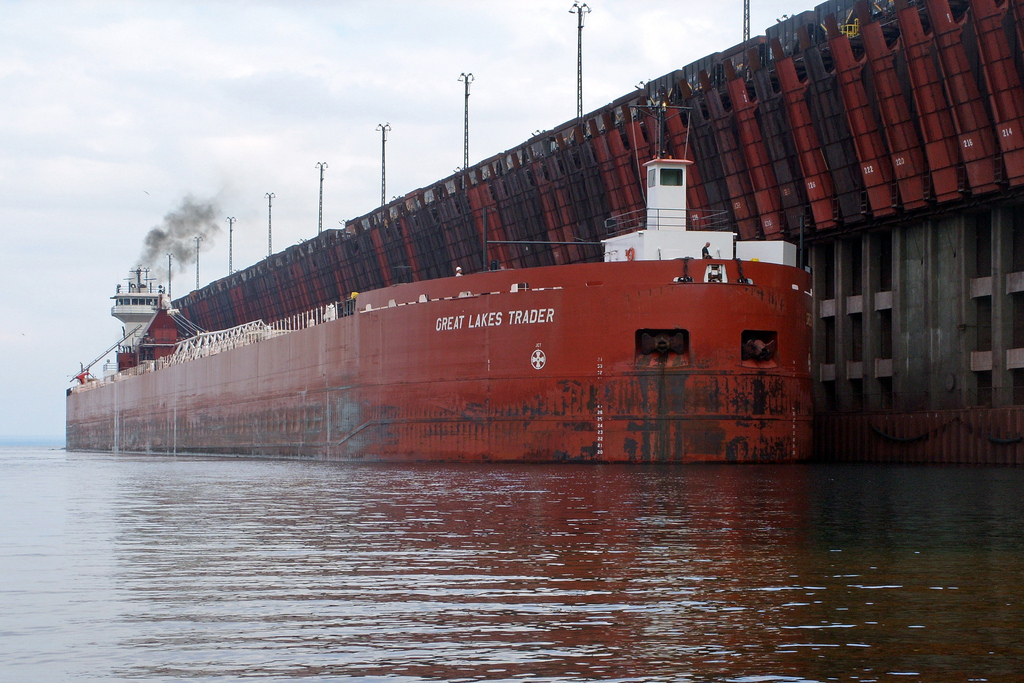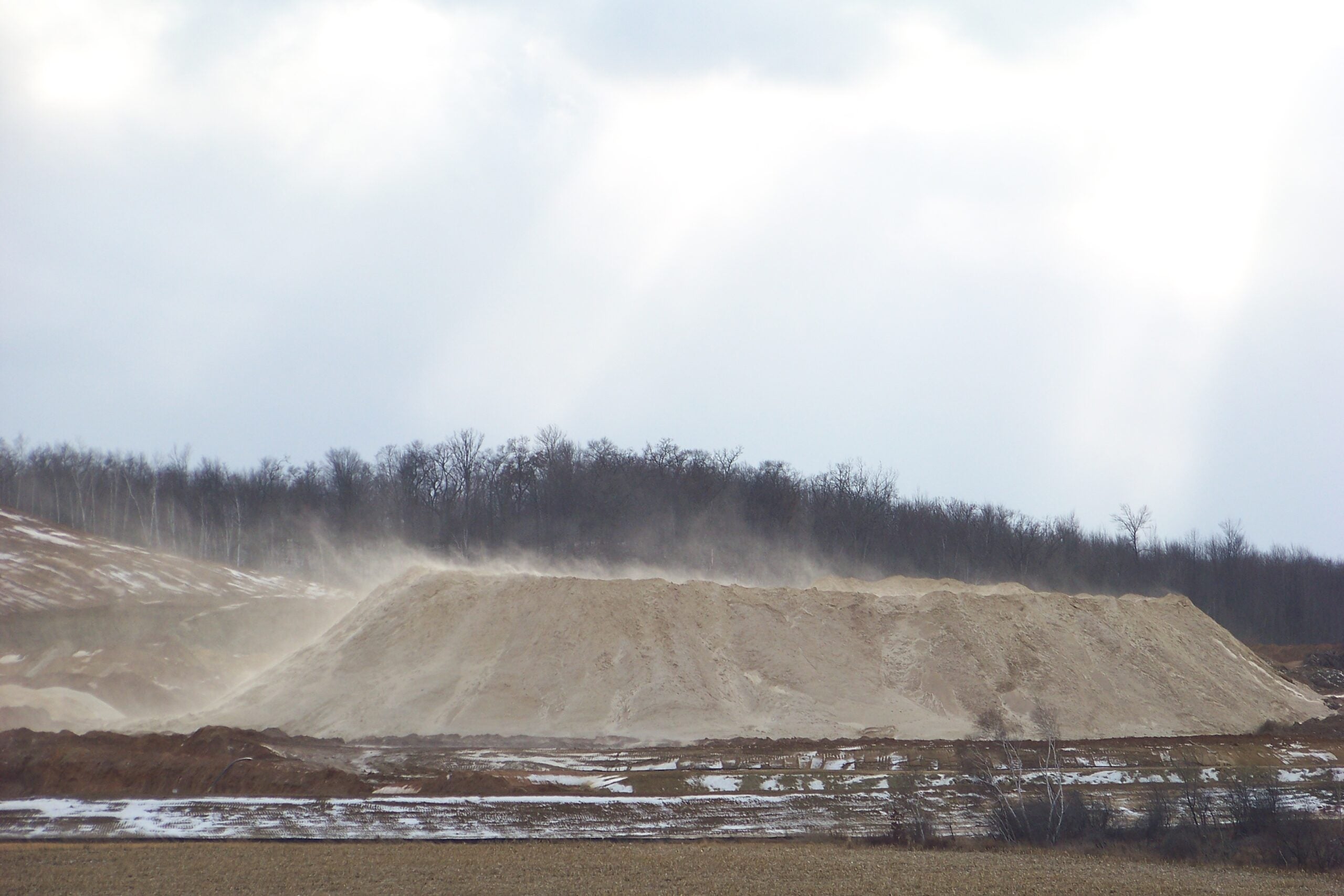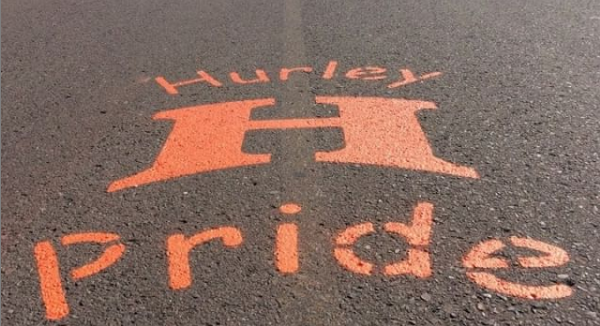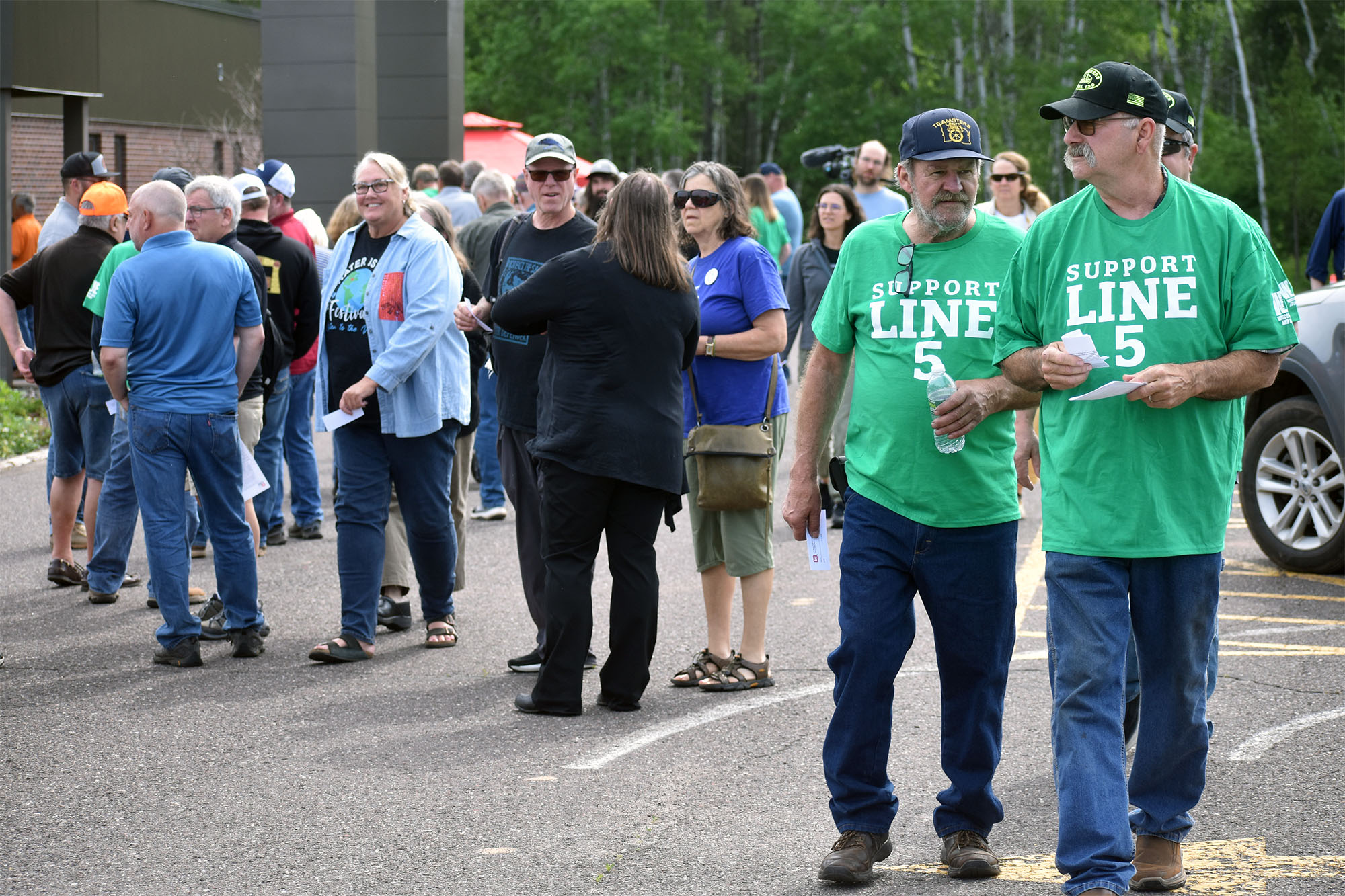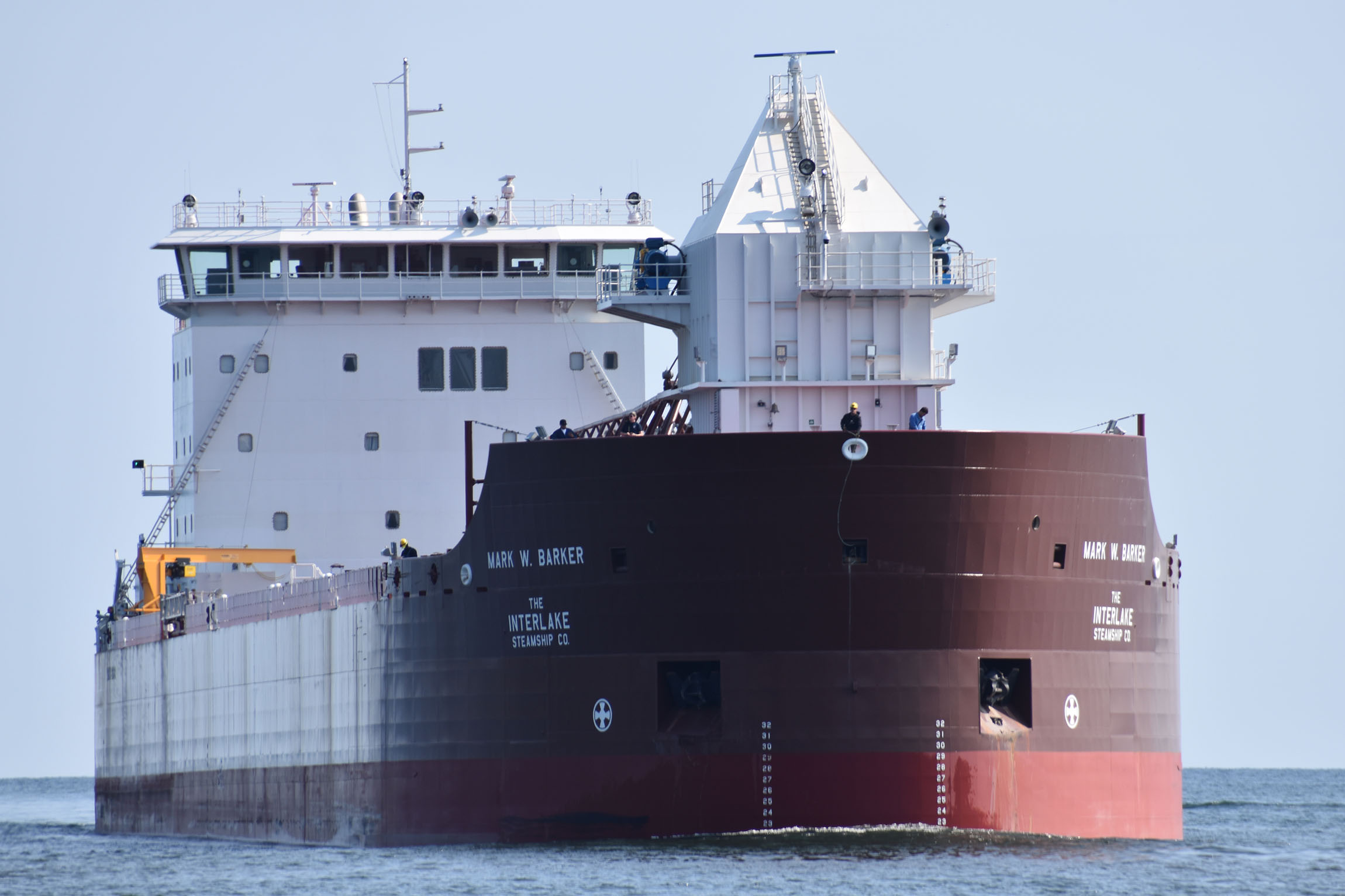As controversy over a proposed iron ore mine in northern Wisconsin continues, so do disputes over the mining industry in Northern Michigan.
Two open pit iron ore mines continue to dig deep into the earth near Marquette, Mich. in the Upper Peninsula. The Empire Mine has been in operation for a half-century and now goes down more than 1,200 feet.
From an observation plateau, huge ore-hauling trucks near the bottom of the mine look small and only create a small roar. Two-hundred sixty million tons of iron ore – worth well into the billions of dollars – have been trucked and shipped out of Empire.
Stay informed on the latest news
Sign up for WPR’s email newsletter.
So when you ask spokesman Dale Hemmila of the Cliffs Corporation, which owns the mine, to describe what he sees when he looks down into the pit, it isn’t the trucks or the greys and reds of the exposed rock. “I see a lot of money that’s gone from this area and brought money in,” says Hemmila. “What we do here is take rocks and send them out of here and bring money back.”
Hemmila feistily rejects the idea that Empire and the nearby Tilden Mine, also owned by Cliffs, are giant scars on the land. “Who made that argument? We’ve been employing people for generations.”
But Cliffs has had recent environmental problems in Marquette County – including unauthorized discharges of waste rock and the triggering of at least one fish consumption advisory.
The company says that’s not why it plans to close the Empire Mine next year, claiming instead that one of its financial partners, a steel company, doesn’t want to sink money into improvements. But there are no plans to shut down the 40-year-old Tilden Mine, and Cliffs says it will keep running a huge ore processing facility there.
But the sound and sight of money being made is not how some people on the Upper Peninsula gauge the mining industry. Kathleen Heidemann of Save the Wild U.P. leads a tour in the City of Negaunee, a few miles away from the Empire and Tilden mines and very close to another mine shut down decades ago.
Heidemann points to a building that’s crumbling and sinking into ground that’s been weakened by underground mining, and talks about land closed off to the public and houses removed to protect public safety.
“Mining companies talk about a sacrifice zone,” she says. “When they talk about mining, there’s a certain sacrifice that comes along with mining. It’s land or it’s air quality or it’s water quality – it’s literally neighborhoods, in this case.”
The mining industry says it now does a much better job of reclaiming the land used for mining.
Anti-mining activists in Northern Michigan say opponents of the proposed Gogebic Taconite iron ore mine in northern Wisconsin should stay buckled down and prepare to challenge pretty much all of the industry’s promises.
Wisconsin Public Radio, © Copyright 2025, Board of Regents of the University of Wisconsin System and Wisconsin Educational Communications Board.
